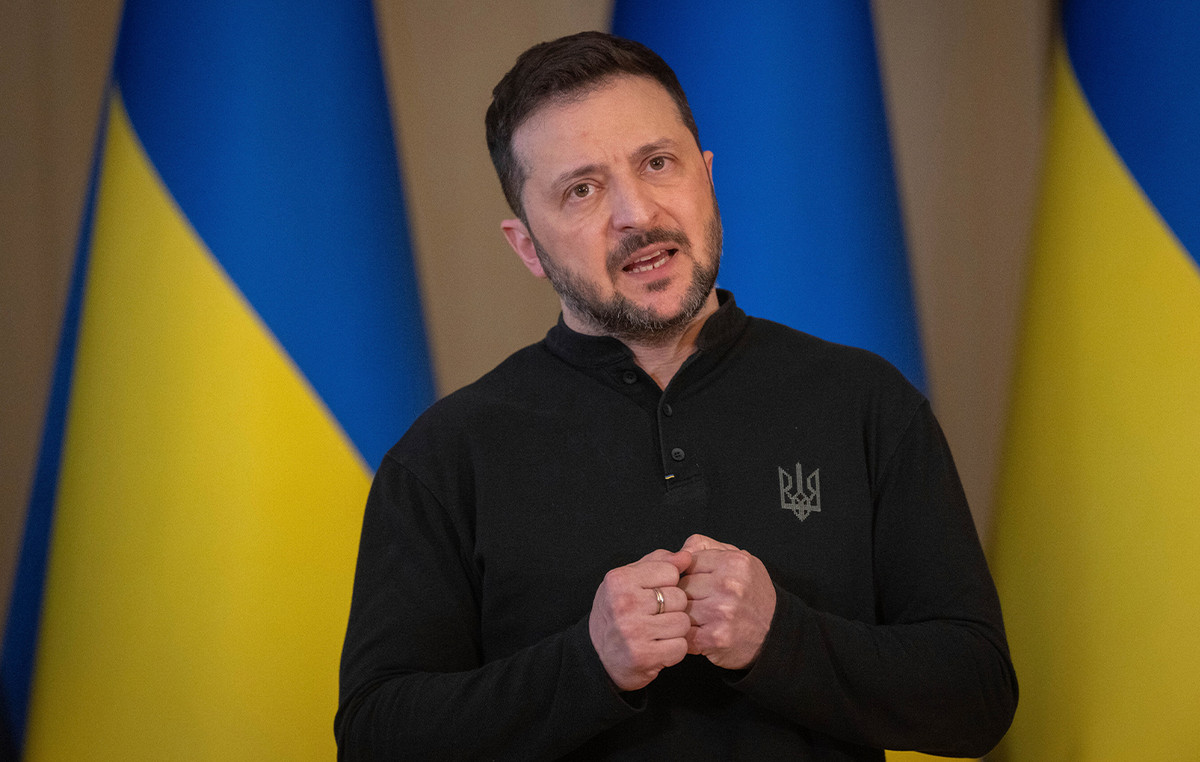Sergio Massa (Unión por la Patria) It is Javier Milei (La Libertad Avanza) They have different trajectories that led them to face each other in the second round of the Argentine Presidential election this Sunday (19).
Frontal opponents, Massa and Milei represent two distinct country projects, the first on the left and the second on the extreme right (which the candidate calls “libertarian”).
Massa is Argentina’s current economy minister, placed in office in September 2021 by President Alberto Fernández and his deputy, Cristina Kirchner, with the aim of leading the country out of the crisis.
However, inflation in Argentina closed at 50.9% in 2021 and has only been growing since then. In 2022, it closed at 94.8%. And now, it is at 142.7% per year.
Massa, who is close to other left-wing governments in South America, promises to resolve the situation from the left, looking at social rights, especially for the poorest population.
It was in this scenario that Milei’s candidacy emerged. Despite being a first-term federal deputy, he is considered a political outsider, as he stands against the “caste” of politicians.
With fiery speeches, Milei made his way to the second round by criticizing all his opponents, the Brazilian and Chinese governments, Pope Francis and the economic and social measures of the current government.
Among its main proposals, which are also considered the most difficult to implement, are the closure of the Argentine central bank and the dollarization of the country’s economy.
He argues that social rights should not be granted because the government or private companies will have to pay for them. Furthermore, he defines himself as a libertarian, who believes that the State should not interfere in anything in the economy and people’s lives, but let the market self-regulate.
Primaries and first round
With this backdrop, Milei became, on August 13, the candidate with the most votes in the Argentine primaries, which indicate which candidates can compete in the first round. At that time, he obtained 30.04% of the votes.
He needed just 1.5% of the valid votes to proceed to the first round, as he was not competing against any other candidate from the same party.
Massa competed for the position with his coalition partner Juan Grabois. He had more than 5 million votes at the moment and almost 4 million for Grabois. Together, they had 27.27% of the votes, placing third. Ahead of them was Patricia Bullrich’s coalition, with 28.27%.
In the first round, on October 22, Massa managed to reverse the situation and reached 36.69% of the votes. Milei came in second place, with 29.99%, a little less than in the primaries.
Unlike Brazil, for a candidate to be elected president of Argentina in the first round, he does not need to win more than 50% of the valid votes, but more than 45% or more than 40% with a difference greater than 10% from the second place candidate.
If neither of the two scenarios occurs, the second round must be carried out. All elected authorities will assume their respective mandates on December 10th.
In the first days after the first round, Bullrich declared his support for Milei, pointing out him as the necessary change to defeat Kirchnerism (a political line linked to the current government).
Latest searches
At this moment, Milei leads voting intentions in electoral polls.
Last Friday (10), Atlasintel pointed out that he had 52.1% against Massa’s 47.9% — with a margin of error of one percentage point.
The survey interviewed 8,971 people over the age of 16 randomly and via digital means between Sunday (5) and Thursday (9). The confidence level is 95%.
Second round: “new election”
It is common for policy analysts to say that the second round of an election is a “new election”. This is because new agreements and signs are being made.
In October, Massa signaled that he would defend a broad front that respects democracy and the standard functioning of the Argentine economy. He said he would work hard to win the votes of center and right-wing voters, trying to show himself as a better option than Milei.
Milei made fewer moves in this direction, but somewhat reduced her fiery criticisms on all sides. In theory, he has an electoral advantage because he has already won Bullrich’s support.
More about the candidates
Sergio Massa

Argentina’s current Economy Minister, Sergio Massa, 51, has the support of President Alberto Fernández and Vice President Cristina Kirchner to run for President.
A lawyer, he was born in San Martín, in the province of Buenos Aires, and comes from a family of Italians who arrived in the country after the Second World War.
As a teenager, during high school, he began working in the Unión del Centro Demático party.
In 1994, he interrupted his law studies at the University of Belgrano, which he only completed during the 2013 electoral campaign, for which he was elected deputy.
In 1999, he was elected provincial deputy. He then held other positions in the Executive and Legislative branches.
Between 2002 and 2007, he headed the National Social Security Administration (Anses), responsible for one of the government’s most important budgets.
In 2007, he was elected mayor of Tigre, a city in the province of Buenos Aires. He remained in this position until 2013, with a period of leave to serve as Chief of Staff during the Presidency of Cristina Kirchner, between 2008 and 2009, succeeding current President Alberto Fernández.
The politician broke with Kirchnerism in 2013 and began a period in which he positioned himself as a strong opponent of this political force.
In 2019, after a reconciliation, he returned to Peronism as a federal deputy for the province of Buenos Aires and held the presidency of the Chamber of Deputies.
Javier Milei

Federal deputy Javier Milei, 53, was born in the Palermo neighborhood, in Buenos Aires, and had a childhood marked by controversy in his family.
Although the relationship with her parents was not good, Milei found support in her sister.
The economist says that Karina Milei is the person who knows him best and points to her as “the great architect” of his political events.
Milei told different media that, if she becomes president, her sister will be the one who will play the role of first lady.
In the 1980s, Milei tried out as a goalkeeper in the youth teams of the Argentine football club Chacarita Juniors.
From 2018 onwards, Milei rose to prominence in the country’s main media outlets with the release of his “liberal libertarian” speech, as he usually calls it.
The big leap in his political career occurred in 2020, when he announced his candidacy for President in the 2023 elections.
This step paved the way for his coalition, La Libertad Avanza, to win two seats in the Chamber of Deputies the following year, occupied by him and his vice-presidential candidate, Victoria Villarruel.
Milei’s main campaign proposals are the dollarization of the Argentine economy, the reduction of state spending and the privatization of public companies.
On the labor front, he proposes the end of severance pay to reduce costs.
In security, he defends controversial proposals: deregulation of gun ownership and militarization of prisons.
DEBATE – Milei wins over Argentine voters with attacks on Lula?
*With information from Leonardo Rodrigues and CNN Spanish
Source: CNN Brasil
Bruce Belcher is a seasoned author with over 5 years of experience in world news. He writes for online news websites and provides in-depth analysis on the world stock market. Bruce is known for his insightful perspectives and commitment to keeping the public informed.







